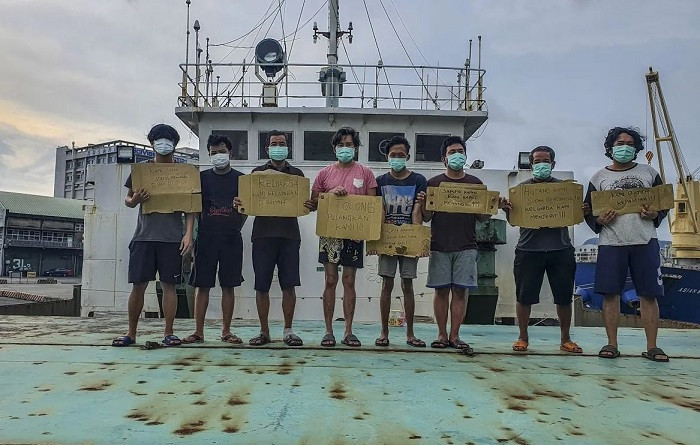Popular Reads
Top Results
Can't find what you're looking for?
View all search resultsPopular Reads
Top Results
Can't find what you're looking for?
View all search resultsCooperation: The catalyst for fighting the COVID-19 crisis
No country, no matter how powerful or prosperous, is immune to COVID-19.
Change text size
Gift Premium Articles
to Anyone
T
he coronavirus nightmare is unfolding around the world, and we have been forced to adjust our lives to face this new reality, limiting the people we meet and the places we go.
No country, no matter how powerful or prosperous, is immune to COVID-19. At least 187 countries have reported cases of the virus.
The number of confirmed cases worldwide has exceeded 290,000, with nearly 13,000 deaths according to the World Health Organization. It took three months to reach the first 100,000 cases but only 12 days to reach the next 100,000.
COVID-19 is hardly the only global health crisis in recent times. It evokes the memory of other respiratory illnesses that also stirred global panic, namely SARS and MERS. Yet, while both SARS and MERS had higher mortality rates, neither can rival COVID-19 in terms of the number of people infected.
COVID-19 has impacted the world economy in an unprecedented way, disrupting global supply chains and the movement of people. The Organization for Economic Cooperation and Development (OECD) has predicted that a longer and more intensive COVID-19 outbreak could cut global growth to a mere 1.5 percent in 2020.
In this climate of uncertainty, many countries have taken drastic measures to contain the virus, including by closing their borders. Some others have imposed mandatory self-quarantine.
As each nation defends itself from the pandemic, which is temporary in nature, we must not lose sight of the importance of expanding international cooperation to beat the virus. Our collective fight against COVID-19 must focus on four key areas.
The first is enhanced global solidarity against COVID-19. Although the threat of COVID-19 is short-term, cooperation and friendship extended at difficult times like these leave a lasting impression. Some say, “A friend in need is a friend indeed.” We share the responsibility to ensure all countries have the necessary support and capacity.
Second, an effective containment strategy requires coordinated measures. There is still much that is unknown about COVID-19. Global health crises of this scale and complexity require more coordinated global responses. These will strengthen trust and confidence between countries.
Information-sharing, technical assistance and the joint production of basic medical equipment would go a long way to combat the virus. Countries should work together to develop a cure for COVID-19 instead of looking for ways to monopolize a future vaccine. Discussion must be geared toward securing funding for COVID-19 preparedness and responses.
Seeing the need for a coordinated strategy to fight COVID-19 in the region, Indonesia has taken the lead in calling for a virtual ASEAN Summit and an ASEAN+3 Emergency Meeting. At the global level, we need a stronger coordination mechanisms to prevent future pandemics.
Third, we must address the socioeconomic impacts of COVID-19. Some countries are more vulnerable than others to external shocks, including the impact of COVID-19. Concessional financing and debt relief by major donors and international financial institutions would provide breathing space to fight COVID-19 and handle its associated costs.
We must seek to revive international trade as an engine for growth. Relaxing import tariffs on goods needed to combat COVID-19 could be a start.
The United Nations secretary-general has reminded us that COVID-19 is essentially a human crisis.
As businesses struggle to keep their employees on the payroll, people are losing their jobs and the health benefits that come with them. Low-wage workers and people working in informal sectors are among those affected the most. Our efforts against COVID-19 must include measures to soften this blow.
In this regard, the upcoming extraordinary virtual G20 Leaders’ Summit, which will discuss efforts to mitigate the human and economic impacts of COVID-19, is very timely.
Fourth, we must invest in resilient and affordable national health systems. COVID-19 will not be the last pandemic of our time. We need a national health system that can withstand the threat of a pandemic. We must use this painful experience to enhance our crisis preparedness strategy and capacity to act early against future pandemics.
National health systems must also be affordable. People must be able to afford to get tested or treated for any disease.
Indonesia is now chairing the Foreign Policy and Global Health (FPGH) initiative, established in 2007 to integrate health issues with foreign policy discussion and decision-making. The theme of Indonesia’s chairmanship is “Affordable Health Care for All”. Our collective experience with COVID-19 shows that the issue of affordable health care is not only relevant to Indonesia but to all countries in the world.
Indonesian government has continued to work hard to fight COVID-19 in the country. Measures we have taken include establishing a taskforce for COVID-19 mitigation, allocating special budget to support the country’s economy, and improving the capacity of hospitals to conduct COVID-19 testing.
Difficult times can reveal people’s true colors. We must not allow COVID-19 to divide us since we do not have the luxury of time or options. Now is the moment to unite, enhance global solidarity and promote coordinated action against COVID-19.
The writer is Indonesian foreign minister.










